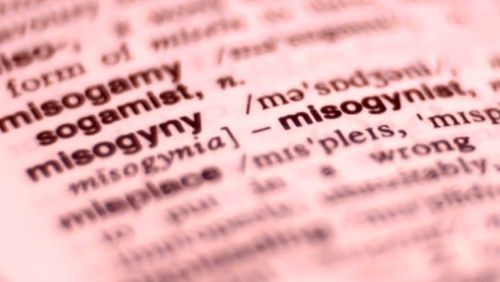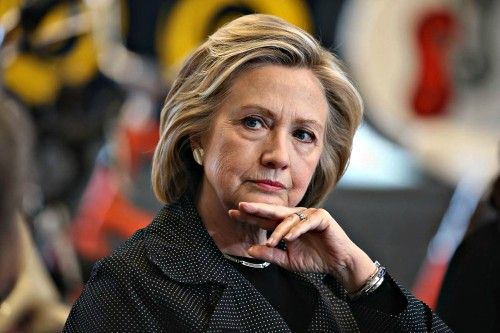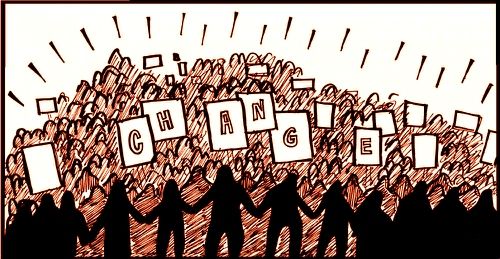
Misogyny. There are a couple of problems that I have with it in this campaign. This year, misogyny is the poisonous idea that anyone who does not intend to vote for Hillary Clinton is taking that position because Clinton is female. At their worst, the misogyny crowd does not even give credit to those who try to prove gender is not an issue for them by supporting Jill Stein. The truth is, gender is an issue for all of us if we are honest, but there are other reasons why someone could not support Hillary Clinton that don’t get addressed as soon as misogyny enters the discussion.
It is certainly true that Hillary Clinton is being held to a much more rigorous standard than her opponent by the media. But blaming that on gender ignores other important reasons for this. I see one standard for coverage of Clinton that amounts to the normal vetting of a presidential candidate in years past. In the last two elections before this one, Barack Obama was held to this standard, but so were Mitt Romney and John McCain. Reporters and pundits believed that any of them might become president, and so the coverage focused on what that might mean for the country. This year, only Clinton is being covered that way, although there are some signs that that may be changing. But up to now, Donald Trump has been held to the same standard as Gary Johnson and Jill Stein; they are interesting side shows, but only Clinton has the chance to actually become president. Trump is more interesting than the other two because he was somehow the best the Republican Party could offer the American people this year, but he is obviously not suited to be president, so no vetting is needed. That attitude in the press has created a situation where a horrible accident could occur, and Trump could actually get elected. But gender has nothing to do with it.
Another reason someone might withhold support from Hillary Clinton is an honest difference of opinion on the issues. This goes back to the primary campaign, where supporters of Bernie Sanders were accused of misogyny, but it still comes up now. In the primary campaign, if you said that Sanders was the more electable candidate, were you saying that you personally would not vote for a woman? If your answer to that question was, no but I don’t think the country is ready, the misogyny police came out in force. But I never saw anyone in the Sanders camp actually say that. Sanders was supposedly more electable because he wasn’t burdened with all the scandals that had gathered around Hillary Clinton over the years. This had nothing to do with gender, since the scandals had begun as attacks on Bill Clinton. More recently, the email scandal has played differently for Hillary Clinton than it did for Colin Powell, for example. But that is because the Republicans and their allies in the right wing media don’t go after their own. In bringing up misogyny in this context, an important difference between the two major Parties gets ignored.
Don’t get me wrong. I certainly believe that misogyny is real, and that it is a factor in some people’s voting decisions this year. But calling someone out as a misogynist is not going to win hearts, minds, or votes. In 2008, the best answer to racism was to elect President Obama, and let him prove as he has so well that a black man was well suited to the job of president. So it is now. Hillary Clinton will prove that a woman can do the job by doing it. Until then, we who intend to vote for her do her a great disservice by crying misogyny whenever someone disagrees with us. Name calling is not a way to win an election, especially if it is a substitute for a real discussion of the issues.
I said at the beginning of this article that I had a couple of problems with misogyny. The second problem is the word itself, and what it tells us about the use of language in this campaign. Misogyny is a beast of a word to spell. Sexism is a rough definition, but it lacks the nuance one gets with the word misogyny. Hillary Clinton is a very intelligent person who thinks hard about the details. She tends to try to use exactly the right word to say what she means. Trump, on the other hand, deals in generalities. His language is blunt and lacking in precision, but, unlike Clinton, he uses language in much the same way his supporters do. This is why, with all the documented lies Trump has told, a recent poll showed that people think he is more honest than Clinton. Her use of language involves a precision that feels to some people like she is showing off her big vocabulary. She is a member of the elite, in this view, who don’t understand the problems of real Americans. If she uses words and phrases that voters don’t hear from the others in their social circles, it can also reinforce the idea that she speaks in this manner to conceal important matters from the electorate. Someone who feels this way would say instead, “She talks that way because she is hiding something.” If Hillary Clinton wants to inspire trust, she can start at tomorrow night’s debate by simplifying her language. She will lose some precision, but she will gain a connection that has eluded her up to now. She will help voters decide that she is someone they would enjoy having a beer with. This is a completely shallow standard for choosing a president, and it has nothing to do with the ability to govern, but study after study has shown that it is how many people vote. And it has everything to do with use of language, and very little to do with misogyny.

